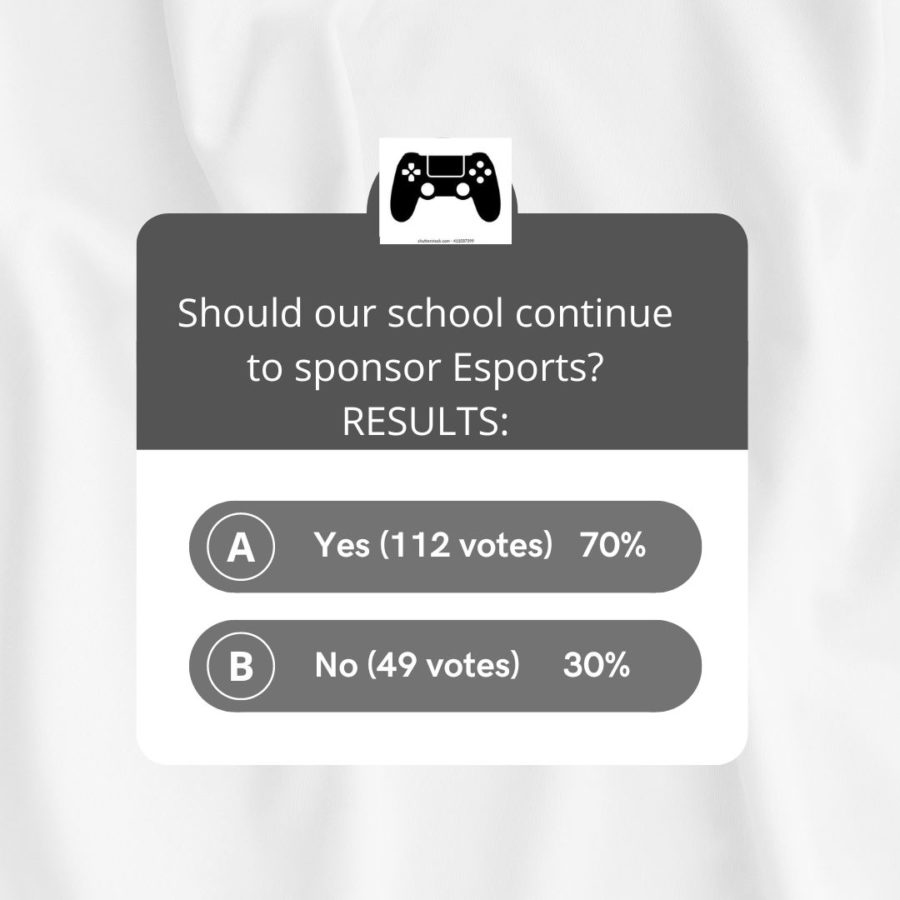More schools should sponsor esports
According to this Instagram poll, 70% of OLHS students want our Esports team to stay while 30% of them would not mind if it were gone.
December 26, 2022
Esports have often been a sensitive topic in whether they should be sponsored by public schools. In some schools, they already have, but others are hesitant.
With the evolution of gaming, players all over the world have come together to participate in tournaments. In recent years, esports have become so popular that even colleges and universities want to get in on the action. According to the National College Sports Association, there are 175 colleges in the U.S. that recognize esports as an official varsity sport.
As these colleges adapt, so should high schools and middle schools.
According to the National Education Association, ever since it’s official recognition as a sport in 2018, over 8,500 high schools in the US have formed esports teams and actively sponsor them like they were any other sport.
A common argument as to why some schools do not implement this is because they think that since there is very little physical activity involved in esports, and that it should not be considered a sponsored sport. While that is true, those same schools also sponsor debate teams, scholastic bowl and band as an actual sport. The true reason could be older generations’ hatred of video games.
Many of the older generations, such as Gen X and Baby Boomers, often use video games as an example of reasons as to why Millenials and Gen Z’s are dumb. They believe that it is preventing us from focusing at school. Due to this mindset, it is clear that the schools cater to what the parents want and not what the students want.
“Schools think they just sit there and game, and since they aren’t doing physical exercises, they think it doesn’t count as a sport,” said senior esports club member Jay Wong.
Parents should be supportive of their child and their hobbies. Many gamers are often antisocial and may not have a lot of friends, so it should be the parents responsibility to help their child find a group of other students that share an interest in the same activities as them. If esports had a bigger backing by the parents of the students, then this would help schools decide to further sponsor esports as a school team and usher in a new age of sports.


